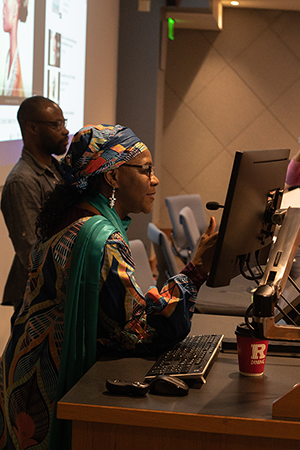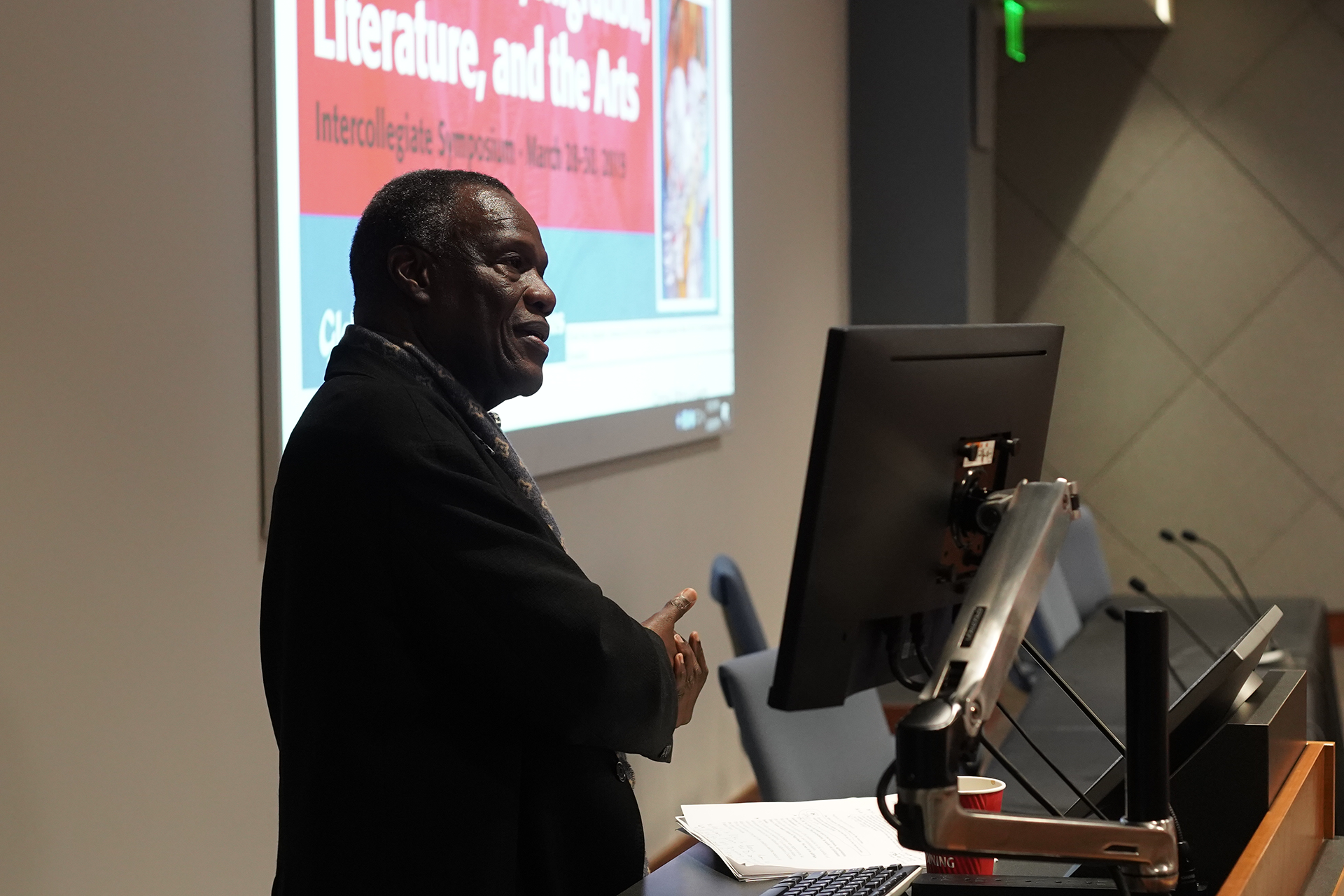“Every voice demands to be heard,” remarked Manthia Diawara in his keynote address at the three-day symposium, “Global Africa, Migration, Literature, and the Arts,” which took place on the New Brunswick campus from March 28 through March 30. Organized by Ousseina D. Alidou and Renée Larrier, both humanities professors from the School of Arts and Sciences, the symposium presented a lively, eclectic, and scholarly showcase of the ways in which Africans and people of African descent stand at the center of world cultural, intellectual, and artistic currents.
As reported in a recap on the African Middle Eastern and South Asian Languages and Literature (AMESALL) website (see the whole recap here), the symposium was filled with topics that ranged from the film “Black Panther” to the rise of underground hip-hop in Nairobi, and brought Global Africa to the Rutgers campus with a wide array of panel discussions, film screenings, and performances.

As mentioned above, the keynote speaker was Manthia Diawara a Malian filmmaker and scholar who spoke about poet and philosopher Edouard Glissant, and whose movie, “An Opera of the World,” described as a meditation on the refugee crisis, was screened on the evening of the 28th. Another panel included a presentation from Professor Diya Abdo from Guilford College in North Carolina, who spoke passionately about Every Campus a Refuge, a new way of thinking about available resources for refugees.
The symposium stretched beyond conventional boundaries of the humanities to include topics such as farming and food production, involving faculty from the School of Environmental and Biological Sciences (SEBS) and Rutgers Business School. On March 30, following the close of the formal symposium, the organizers held a K-12 teacher workshop on “Teaching Global Africa through its Foodways: From the Farm to the Table.”
Rutgers has long been a leader in the study and teaching of Africa. The faculty includes more than 80 scholars with expertise ranging from anthropology to literature to linguistics to social and cultural history. Departments such as AMESALL offer courses in African languages such as Akan, or Twi, as well as Swahili. The university’s Center for African Studies, a key partner in the symposium, recently celebrated its 20th anniversary.
Eric Garfunkel, vice president of global affairs for Rutgers University, who opened the symposium, noted: “We work around the world, but some of us within Rutgers Global and the Rutgers Global Health Institute are strongly supporting and engaging in a range of African initiatives, including our recent collaborative partnership with Botswana.”
Professor Alidou said of the three-day symposium: “We wanted to have a conversation on a large scale about Africa in the world and have it channeled through the humanities. Whether one is on the continent or in the United States or the Middle East or Australia, we want to understand Africa’s particular contribution in many fields and endeavors.”
For more about the Global Africa, Migration, Literature, and the Arts symposium, visit: https://www.amesall.rutgers.edu/global-africa/symposium/2019-symposium

